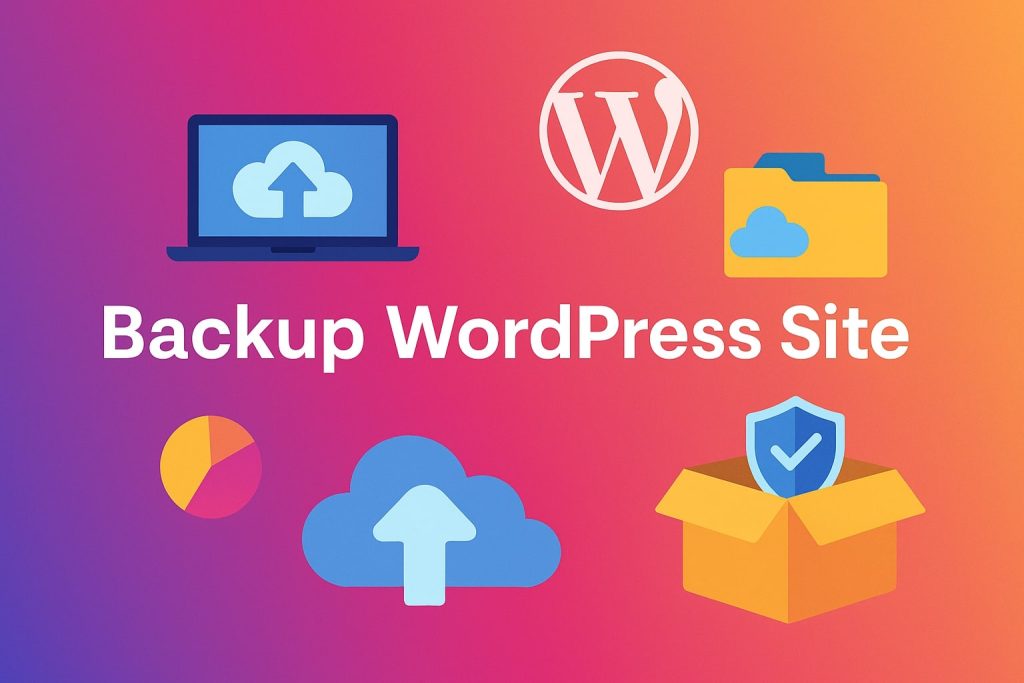Running a WordPress site means your data is more critical than ever. Whether it’s product listings, customer orders, blog content, or custom themes, one security breach, hosting failure, or simple human error can bring your entire site crashing down. And without a recent, reliable backup WordPress site, recovery can be frustrating, expensive—or downright impossible.
That’s why having an automated, consistent backup strategy is non-negotiable in 2026.
Table of contents
ToggleQuick Comparison: WordPress Backup Methods 2026
| Backup Solution | Best For | Starting Price | WooCommerce | Cloud Storage |
|---|---|---|---|---|
| Jetpack VaultPress | Beginners | $4.95/mo | Yes | Included |
| UpdraftPlus | Most popular | Free / $70/yr | Yes | Multiple options |
| BlogVault | WooCommerce stores | $89/yr | Optimized | Included |
| BackWPup | Budget users | Free / $69/yr | Yes | Dropbox, S3 |
| Manual (cPanel/FTP) | Developers | Free | Yes | Your server |
Why Backing Up a WordPress Site is Critical
Imagine you wake up to find your website replaced with a strange message from a hacker—or worse, your entire database wiped clean after a plugin update went wrong. Without a recent backup, recovering your site could take days or may not even be possible.
Common use cases for regular backups include:
- After a plugin or theme update causes conflicts
- When migrating to a new hosting provider
- Before making major design or structural changes
- In the event of malware or ransomware attacks
- As a part of routine security practices
Top Methods to Backup WordPress Site in 2026
1. Jetpack VaultPress Backup
Jetpack VaultPress Backup is part of the Jetpack suite from Automattic. It offers daily or real-time backups stored securely on their cloud servers.
Best For: Users looking for a plug-and-play backup system.
Pros:
- Automatic backups with one-click restores
- Reliable cloud storage with trusted infrastructure
- WooCommerce support included
Cons:
- Requires WordPress.com connection
- Fewer customization options
Pricing: Starts at $4.95/month
2. UpdraftPlus
UpdraftPlus is the most popular WordPress backup plugin with over 3 million active installations.
Best For: Users wanting flexible, free backup options.
Pros:
- Free version with full backup/restore
- Multiple cloud storage options (Google Drive, Dropbox, S3)
- Scheduled automatic backups
Cons:
- Advanced features require premium
- Interface can be overwhelming
Pricing: Free / Premium from $70/year
3. BlogVault
BlogVault is specifically designed for WooCommerce stores with incremental backups that don’t overload your server.
Best For: WooCommerce store owners needing reliable backups.
Pros:
- WooCommerce-optimized incremental backups
- Built-in staging and migration
- 365-day backup history
Cons:
- No free version
- Higher price point
Pricing: Starts at $89/year
4. BackWPup
BackWPup offers a solid free backup solution with options to store backups on Dropbox, S3, or FTP.
Best For: Budget-conscious users needing reliable backups.
Pros:
- Comprehensive free version
- Multiple storage destinations
- Database optimization included
Cons:
- Restore requires premium or manual process
- Less intuitive interface
Pricing: Free / Pro from $69/year
5. Manual Backup via cPanel or FTP
For developers and technical users, manual backups via cPanel File Manager or FTP remain a viable option.
Best For: Developers who prefer full control.
Pros:
- Complete control over backup process
- No plugin dependencies
- Free (included with hosting)
Cons:
- Time-consuming and manual
- Easy to miss database or files
- No automated scheduling
Choosing the Right Backup Method for Your WordPress Site
The best backup solution depends on your technical comfort level, budget, and site complexity. For most users in 2026, we recommend UpdraftPlus (free) or BlogVault (WooCommerce stores). Whatever you choose, ensure you have automated, off-site backups running regularly.
Interesting Reads:
12 Best WordPress Security Plugins to Protect Your Site in 2026
10 Best Hosting Companies to Gear Up Your Ecommerce Store in 2026



